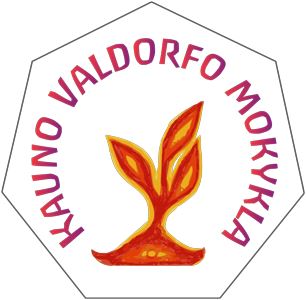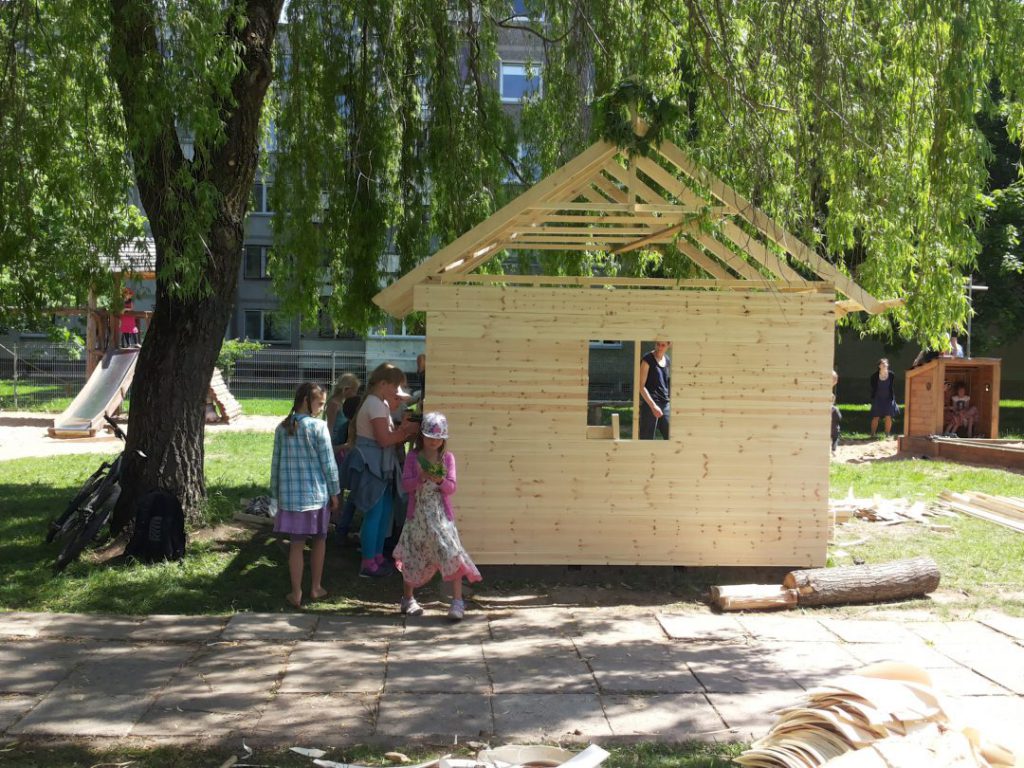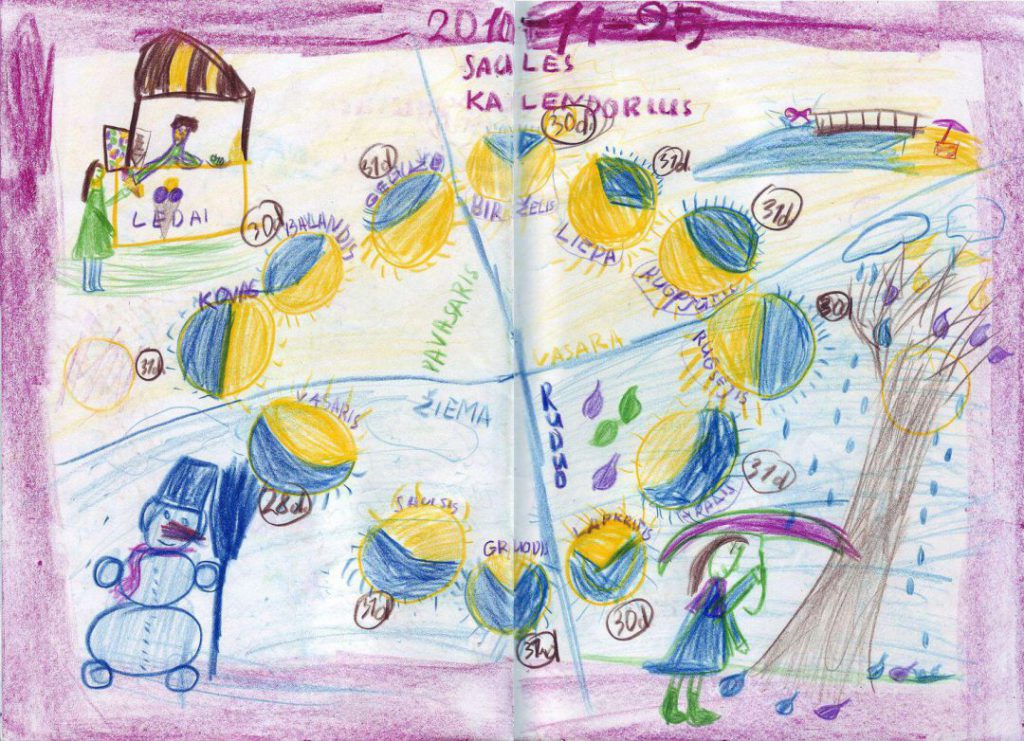In the third grade, in the tenth year of life, children often experience a psychological crisis - it's like saying goodbye to childhood. There is a strong sense of loneliness. Children now notice a greater difference between themselves and adults. They begin to question the authority of the teacher, exploring which person is worth listening to and who is worthy of trust. They experience injustice stronger, it becomes harder to forget and forgive lies. Some children, in search of their own identity, seek to find out if they are not children of other parents, so parents ask about their emergence, the specific circumstances of their birth. During this period, they need to be helped to answer the existential questions that arise, to promote their confidence in the environment, to reveal the meaning of life.
In the third grade, Lithuanian folk tales and various materials that capture and reflect Lithuanian folk traditions are told. The lessons are rich in singing and folklore. The stories, images, and teachings of the Old Testament through which children learn about the creation of the world shape their moral attitudes. The main themes of the stories are the creation of the world, human responsibility, human activity on earth, traditions and crafts.
The Waldorf School’s 3rd grade curriculum places a strong emphasis on a variety of work through human experience. Third people have several special epochs: farming (from grain to bread) and animal husbandry, old crafts (professions), building a house (building week with the help of parents), and the stories of the creation of the world, which teach language writing (students start writing with a pen) and mathematics (from anthropological measurements to units of the metric system).
In this way, students experience changes in the cycle of the year during their studies, delving into natural phenomena and the impact of the environment on human life. Lessons in cognition of the world are closely linked to social, technological and artistic education, as well as to mathematics and languages. They complement each other and form a unified whole, and by integrating the Lithuanian language into other subjects (usually knowledge of the world), students not only tell, but also write short essays, write poems and write texts prepared by the teacher in a notebook of periods.







